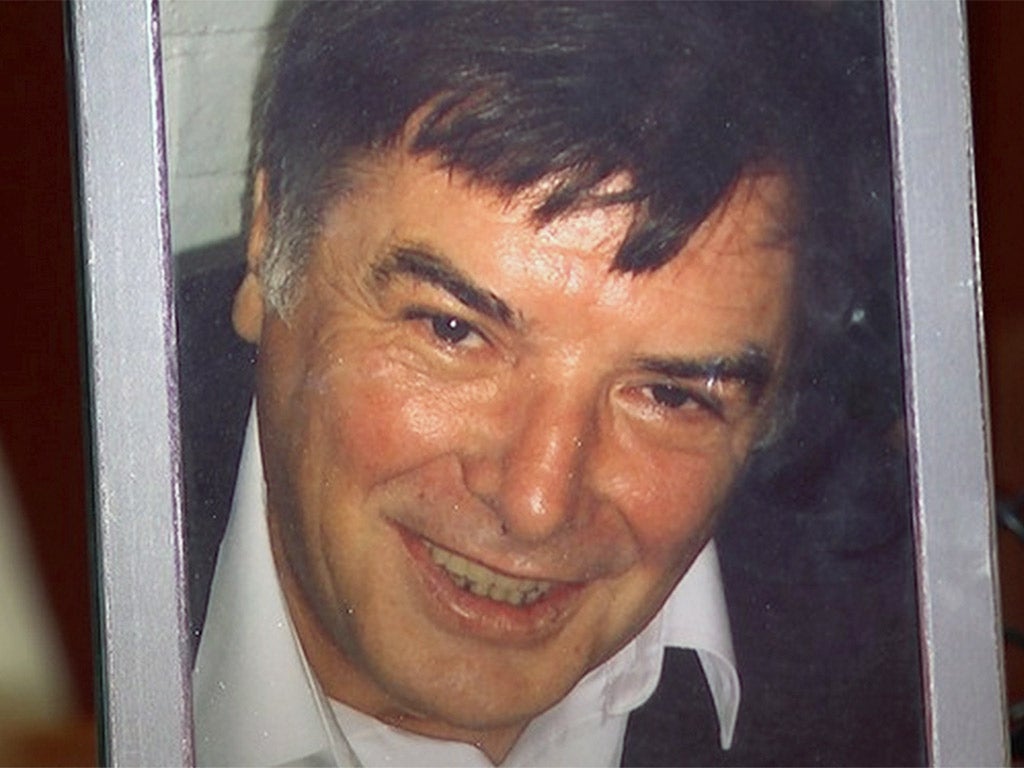Daughter of man who killed himself after being declared fit for work warns many more people will die
Anne-Marie O’Sullivan says the way assessors ignored the expert advice of treating clinicians was behind her father’s death

Your support helps us to tell the story
From reproductive rights to climate change to Big Tech, The Independent is on the ground when the story is developing. Whether it's investigating the financials of Elon Musk's pro-Trump PAC or producing our latest documentary, 'The A Word', which shines a light on the American women fighting for reproductive rights, we know how important it is to parse out the facts from the messaging.
At such a critical moment in US history, we need reporters on the ground. Your donation allows us to keep sending journalists to speak to both sides of the story.
The Independent is trusted by Americans across the entire political spectrum. And unlike many other quality news outlets, we choose not to lock Americans out of our reporting and analysis with paywalls. We believe quality journalism should be available to everyone, paid for by those who can afford it.
Your support makes all the difference.The daughter of a man with severe depression who killed himself after having been declared fit for work says more people will die unless the Government changes the way benefits are assessed.
The Independent reported earlier this week how a coroner found that Michael O’Sullivan, 60, took his life as a direct result of being found “fit to work” by the Government’s outsourced disability assessors. The north Londoner had his disability benefits removed, despite three doctors saying he suffered from recurrent depression and his GP certifying him as unable to work.
His daughter, Anne-Marie O’Sullivan, says the way assessors ignored the expert advice of treating clinicians was behind her father’s death.
“His own GP told us he felt impotent because, despite what they said, their decision was overridden by the DWP, by the agency they employed to run these assessments, which don’t work and they have to stop,” she told ITV News. “If they continue to assess people the way they assessed Dad, we’ll continue to lose lives. Vulnerable people need support and we should be able to give them that support, we shouldn’t just let them fall by the wayside.”
Mr O’Sullivan had a long history of debilitating mental illness, including fear of being outdoors. His daughter said this meant the extra pressure of having his benefits taken away was overwhelming: “He couldn’t cope. The pressure was too much. He was a sensitive soul anyway. It was too much of a burden and he just buckled under that pressure.
“This could have been avoided ... it haunts us. Our life changed the day he left. Everything changed forever.”
Mr O’Sullivan had been on a waiting list for therapy. His daughter recalled: “Dad was under the care of his GP for many years. He also had a team of psychiatrists and psychologists and was on a waiting list to start talking therapy. He actually got to the top of the waiting list the day after his funeral and his doctors were doing everything they could to support him, but even they felt helpless, useless.”
Nearly 90 people died every month between 2011 and 2014 after they had been declared fit for work after undergoing a work capability assessment, government figures show.
Mr O’Sullivan’s suicide is believed to be the first that a coroner has explicitly blamed on the welfare reforms. Mary Hassell, the senior coroner for inner north London, wrote to the DWP about Mr O’Sullivan’s case, saying she believed there was a risk of similar deaths and demanding preventative action.
Although he died in 2013, the case has only just come to light. In a formal finding following an inquest in January last year, Ms Hassell said: “[His] anxiety and depression were long-term problems, but the intense anxiety that triggered his suicide was caused by his recent assessment by the [DWP] as being fit for work, and his view of the likely consequences of that.”
A DWP spokeswoman said: “Suicide is a tragic and complex issue and we take these matters extremely seriously.
“Following reforms to the work capability assessment, which was introduced in 2008, people are getting more tailored support to return to work instead of being written off on long-term sickness benefits as happened too often in the past.”
Join our commenting forum
Join thought-provoking conversations, follow other Independent readers and see their replies
Comments